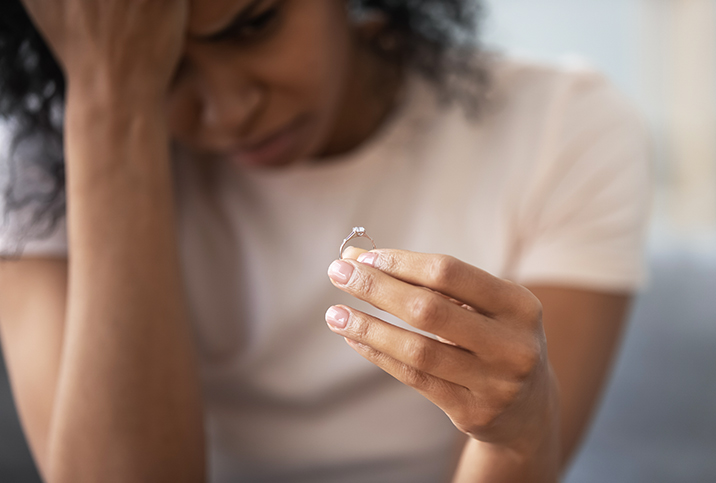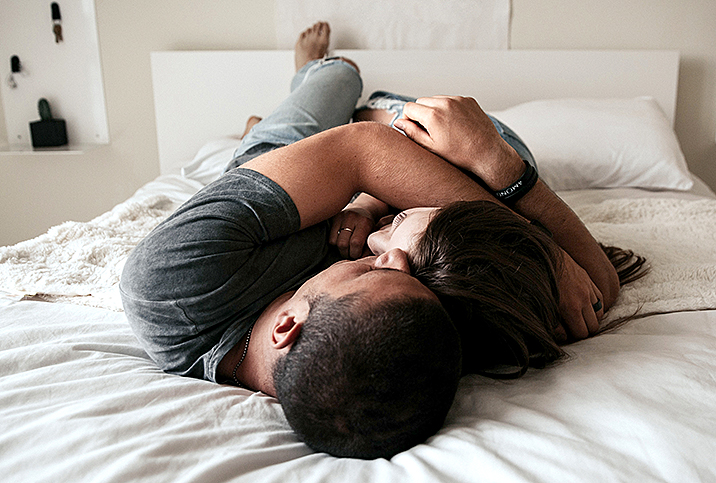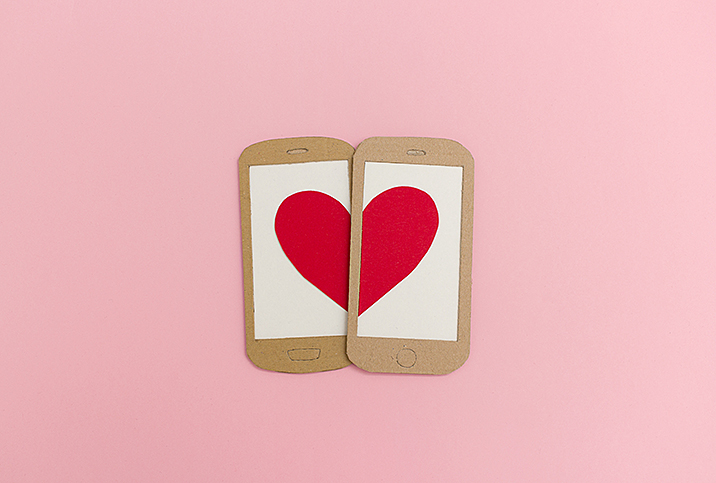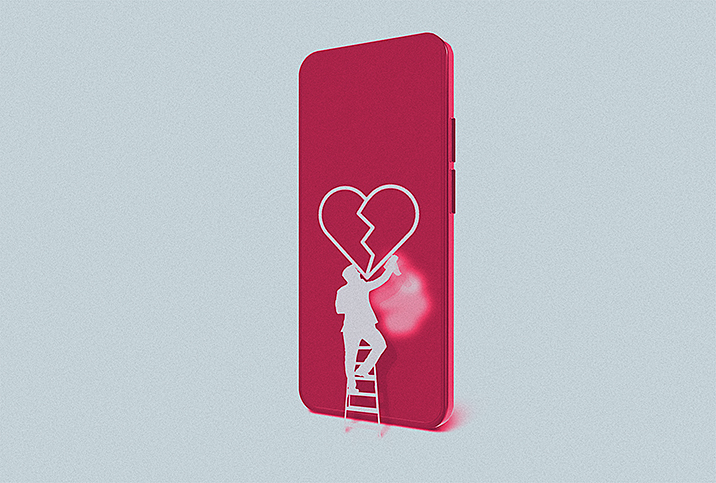Is Social Media Ruining My Relationship?

Though social media has existed for only roughly two decades, it now impacts virtually all aspects of our lives, affecting everything from work to pop culture, consumerism and relationships.
Indeed, platforms such as Instagram, Snapchat, Facebook, TikTok and more have changed the way we flirt, date and fall in love, allowing us to contact anyone at any time with just the tap of a screen without ever leaving the couch. But as much as social media can serve as a relationship creator, it can also be a relationship killer.
Social media's role in a relationship all depends on how you use it, according to Danai Maraire, a California-based relationship coach and founder of the Black Marriage Movement who routinely helps couples deal with social media-related tension.
"Social media alone is neither negative nor positive," she said. "Social media can be negative in that it can create opportunities for old flames and exes to easily connect, and that can be dangerous."
The cost of temptation
A close friend of mine has been in that boat before. Kiana Dadson, 24 years old and based in Montreal, once allowed temptations on social media to come between her and a previous partner. Now that she's in a healthy, long-term relationship, she said she sees clearly how engaging in "innocent" Instagram flirting eventually resulted in disaster.
"In one of my relationships, I had an ex who was constantly reacting to my Instagram Stories, and I would feel like that was innocent because it was just a reaction," she said. "It wasn't a full-fledged conversation, until it was."
The Instagram Story, a feature that allows users to share photos and videos that disappear within 24 hours and gives others an easy opportunity to react and respond, launched in 2016. This feature made it even easier for people to initiate conversations without having to send a direct message out of the blue or comment on a post publicly.
This "lower-scale infidelity," as Dadson referred to it, can create or heighten feelings of insecurity in a relationship, leading to tension.
"When Stories came out, you could just quickly react to something and interact with someone in a minimal way, but it was still kind of sneaky," she said. "And the other thing with Stories is you can see who watches them. So, on the other end, I would post a Story and hope that certain people would watch it."
Dadson was eventually honest with her then-partner about her social media activities, and though she believes they ultimately would have broken up either way due to compatibility issues, she said her actions definitely played a role in her boyfriend's decision to end their year-and-a-half relationship. She said she understood the decision and learned from her mistakes, but at the time was devastated nonetheless.
Phubbing and jealousy
About one-quarter of partnered Americans say their significant other's social media use has made them feel jealous or unsure about the relationship, while 40 percent say they are often or sometimes bothered by the amount of time their partner spends on their phone, according to a Pew Research Center survey published in 2020.
The practice of paying more attention to our mobile phones than our romantic partners has become so commonplace, in fact, that there's a word to describe it: phubbing. Though it was coined by an Australian advertising agency back in 2012, the term has never been more relevant: literally, the act of snubbing the person you're with in favor of your phone.
Many of the couples Maraire coaches are familiar with this practice. She said she once worked with two people who used social media to actively try to make each other insecure.
"Both of them had trust issues and early childhood wounding that was being triggered," she said. "This caused each party to attempt to 'stabilize' their overwhelming emotions and anxiety by acting out in a manner that felt like control, but it was actually spiteful."
As the rift in their relationship grew, they approached Maraire for help, and she encouraged them to deactivate their accounts and start focusing on the love they had for each other.
Eventually, she said, they were able to develop a set of boundaries—including rules for engagement, limits on time spent online and so on—that ensured they would both feel comfortable with each other's social media usage.
What about single people?
While social platforms certainly have wide-reaching impacts on people in relationships, Maraire said they can also present challenges for singles, as the notion that there are endless romantic and sexual options out there can sometimes prevent people from feeling satisfied enough to make a commitment.
"It has made us lazier," she said. "Lots of millennials discuss the lack of effort people are willing to put into finding, securing and maintaining healthy relationships. If people are easily replaceable and expendable, then why should you have to put in effort? You can always find another one."
But if we use it right, Maraire said social media can also help us find and keep fulfilling romantic connections.
Certain apps, for example, can help partners in a long-distance relationship keep in touch, provide a platform on which couples can express their feelings, and allow people to discover relationship coaches and other professionals who may be able to help them improve their relationships—and, by extension, their lives. They can also enable people to leave bad relationships by showing them the abundance of other options out there.
For single people who are seriously looking to meet someone, especially at a time when organic meet-cutes are few and far between, social media can be life-changing.
"At any given time, you have a smorgasbord of people at your fingertips," Maraire said. "All you have to do is scroll and then DM them to shoot your shot."


















